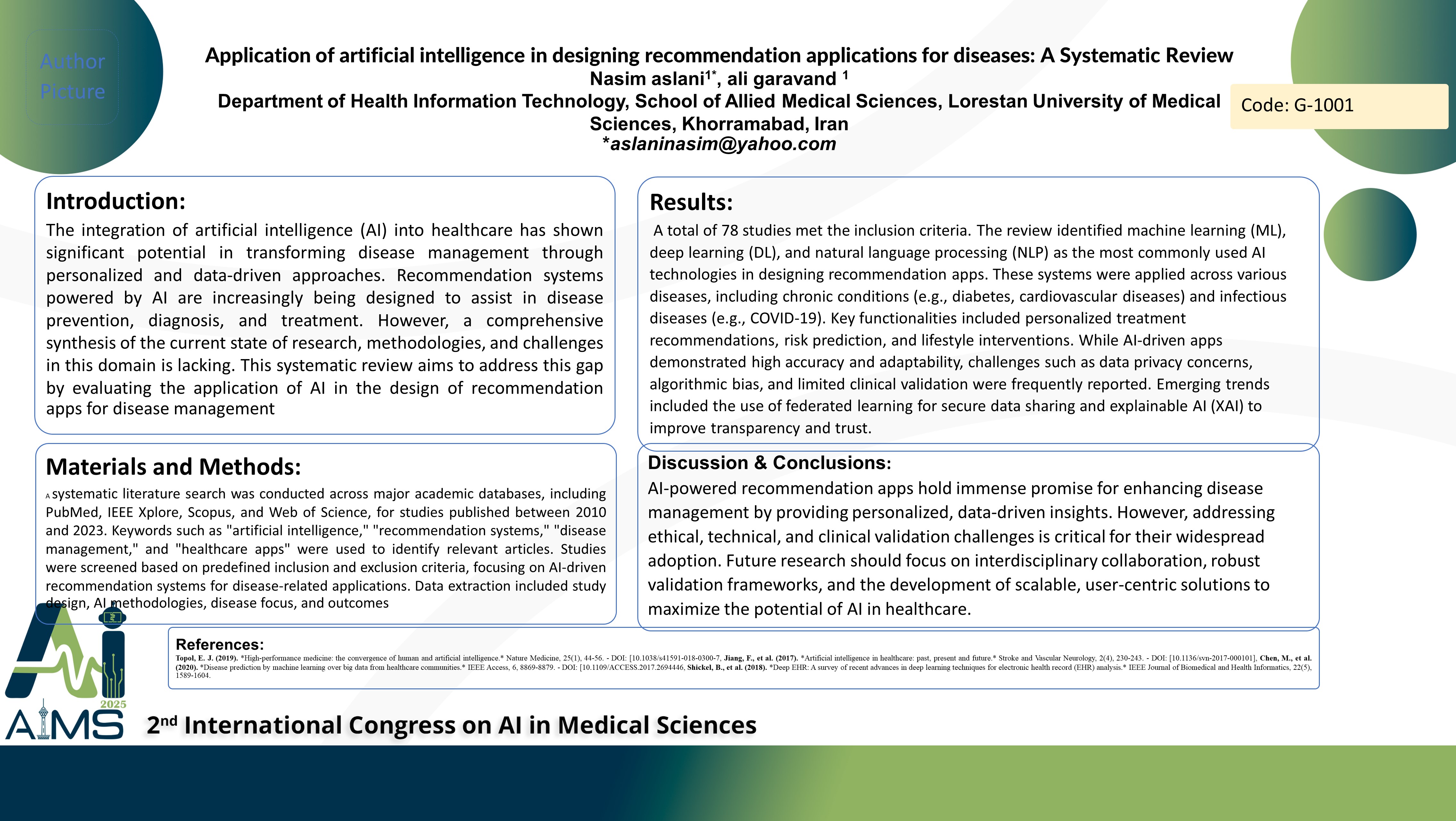Application of artificial intelligence in designing recommendation applications for diseases: A Systematic Review
Code: G-1247
Authors: Nasim Aslani * ℗, علی گراوند
Schedule: Not Scheduled!
Tag: Clinical Decision Support System
Download: Download Poster
Abstract:
Abstract
Background and aims: The integration of artificial intelligence (AI) into healthcare has shown significant potential in transforming disease management through personalized and data-driven approaches. Recommendation systems powered by AI are increasingly being designed to assist in disease prevention, diagnosis, and treatment. However, a comprehensive synthesis of the current state of research, methodologies, and challenges in this domain is lacking. This systematic review aims to address this gap by evaluating the application of AI in the design of recommendation apps for disease management. Methods: A systematic literature search was conducted across major academic databases, including PubMed, IEEE Xplore, Scopus, and Web of Science, for studies published between 2010 and 2023. Keywords such as "artificial intelligence," "recommendation systems," "disease management," and "healthcare apps" were used to identify relevant articles. Studies were screened based on predefined inclusion and exclusion criteria, focusing on AI-driven recommendation systems for disease-related applications. Data extraction included study design, AI methodologies, disease focus, and outcomes. Results: A total of 78 studies met the inclusion criteria. The review identified machine learning (ML), deep learning (DL), and natural language processing (NLP) as the most commonly used AI technologies in designing recommendation apps. These systems were applied across various diseases, including chronic conditions (e.g., diabetes, cardiovascular diseases) and infectious diseases (e.g., COVID-19). Key functionalities included personalized treatment recommendations, risk prediction, and lifestyle interventions. While AI-driven apps demonstrated high accuracy and adaptability, challenges such as data privacy concerns, algorithmic bias, and limited clinical validation were frequently reported. Emerging trends included the use of federated learning for secure data sharing and explainable AI (XAI) to improve transparency and trust. Conclusion: AI-powered recommendation apps hold immense promise for enhancing disease management by providing personalized, data-driven insights. However, addressing ethical, technical, and clinical validation challenges is critical for their widespread adoption. Future research should focus on interdisciplinary collaboration, robust validation frameworks, and the development of scalable, user-centric solutions to maximize the potential of AI in healthcare.
Keywords
Artificial Intelligence, Recommendation Systems, Disease Management,
